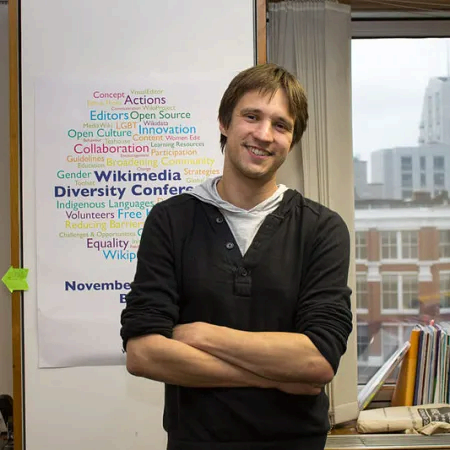 By Katie Chan (Own work) [CC-BY-SA-3.0 (http://creativecommons.org/licenses/by-sa/3.0)], via Wikimedia Commons
By Katie Chan (Own work) [CC-BY-SA-3.0 (http://creativecommons.org/licenses/by-sa/3.0)], via Wikimedia Commons
Simon Knight, BSc (international hons – Leeds), PGCE (IoE), MA (distinction, IoE), MPhil (distinction, Cantab), PhD (OU), CPsychol (isn’t this a fun game to play…see my CV)
Evidence, and sound argumentation are under the spotlight, with increasing availability of data, alongside a mistrust in the media, politicians, and ‘experts’ more broadly. Understanding how people navigate their own, and others’ knowledge is one of the most pressing social issues of our time in order to develop a sustainable society.
My research probes how people find, evaluate, and make decisions based on evidence, by investigating the ways in which they search for information, talk about claims, and analyse and evaluate data. For example, in lots of contexts from trying to reconcile competing political views, or evaluating health evidence, we turn to search engines to do research. So, one strand of my work has explored how small groups search for, and evaluate, information on the internet. We wanted to understand how people thought about the information they needed and went about finding it, and how we could support them to do that better.
I’ve used the lens of ‘epistemic cognition’, particularly in social/collaborative contexts to explore this issue. As a corollary to that, of course search engines (and other tools) also shape our view of evidence, so I’ve also explored these ‘epistemological assumptions’, particularly in the context of educational assessments. A second strand of work developed from my previous position as a Lecturer at the University of Technology Sydney’s Connected Intelligence Centre. There, we took a primary focus on student writing: how students write about evidence, assess the evidence in other’s written texts, and build arguments. In that work, we developed some natural language processing tools to provide formative feedback to students. In conducting that research, we’ve taken a learning design approach to understand how we can bring technologies and teaching together to support learning. A key part of that is understanding how students and educators make use of evidence such as assessment data in their design, and how we can support them to do that better.
A particular focus of my work has been how we use and integrate learning analytics: the use of data derived from learning contexts to help us understand learning, and support it more effectively. My research and teaching has a broad focus, then, on how we integrate use of evidence into people’s decision making practices. My teaching has particularly focused on quantitative literacy, and teaching students to spot where statistical information has been used well, poorly, or omitted where it should not have been. At the UTS TD School, my work is shifting to focus specifically on how varied stakeholders integrate multiple sources of evidence, and how they deal with conflict and uncertainty expressed in that evidence; key skills across professions to navigate our modern world.
Who Am I?
I’m interested in epistemic cognition – beliefs about the source, structure, justification and stability of knowledge – and their relationship to actions by individuals and organisations. On the latter, I wrote my MA thesis in philosophy of education on the implications of one perspective on mind (the Extended Mind thesis) for our understanding of knowledge and its assessment. There I focussed particularly on the use of external tools, and an experiment in Denmark which allowed students access to the internet during their exams (which to my knowledge is still ongoing) and the different notion of ‘knowledge’ implicated in that sort of system from the UK system. There I was supervised by the Institute of Education’s/London Knowledge Lab’s Jan Derry
My MPhil explored these beliefs in action, looking at how children talk about their information needs when engaged in collaborative information retrieval activities in the classroom, and finding that these ‘epistemic beliefs in action’ were – unsurprisingly – related to the quality of information they retrieved. This work also found that their use of ‘exploratory talk’ – talk in which reasons are explained, ideas respected, etc. – was related to search success. This work was supervised by Neil Mercer at Cambridge
My PhD research explored these beliefs in the context of mapping user epistemic beliefs as linked to their information retrieval behaviours, and working to scaffold the development of these beliefs through the use of learning analytics and collaborative platforms. I was supervised by KMI’s Simon Buckingham Shum (now at UTS), CREET’s Karen Littleton, and IET’s Bart Rienties